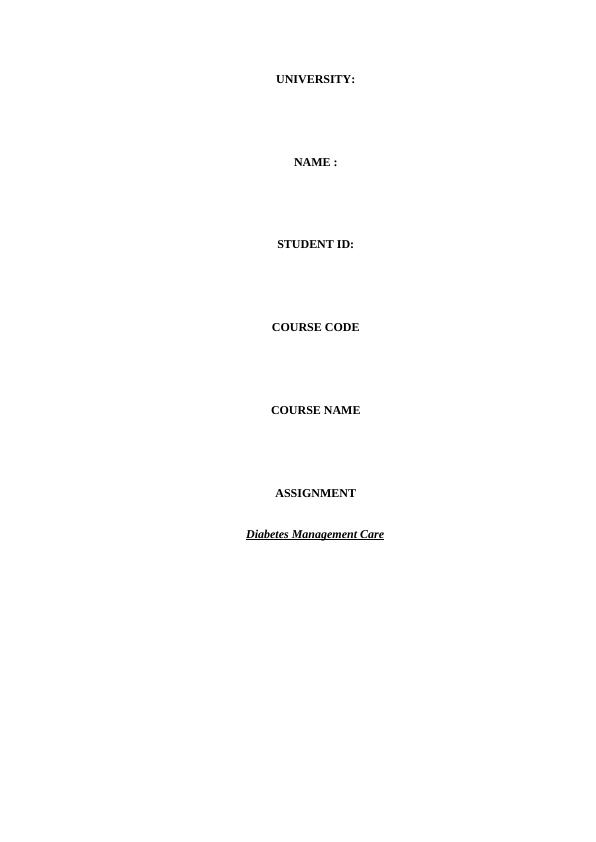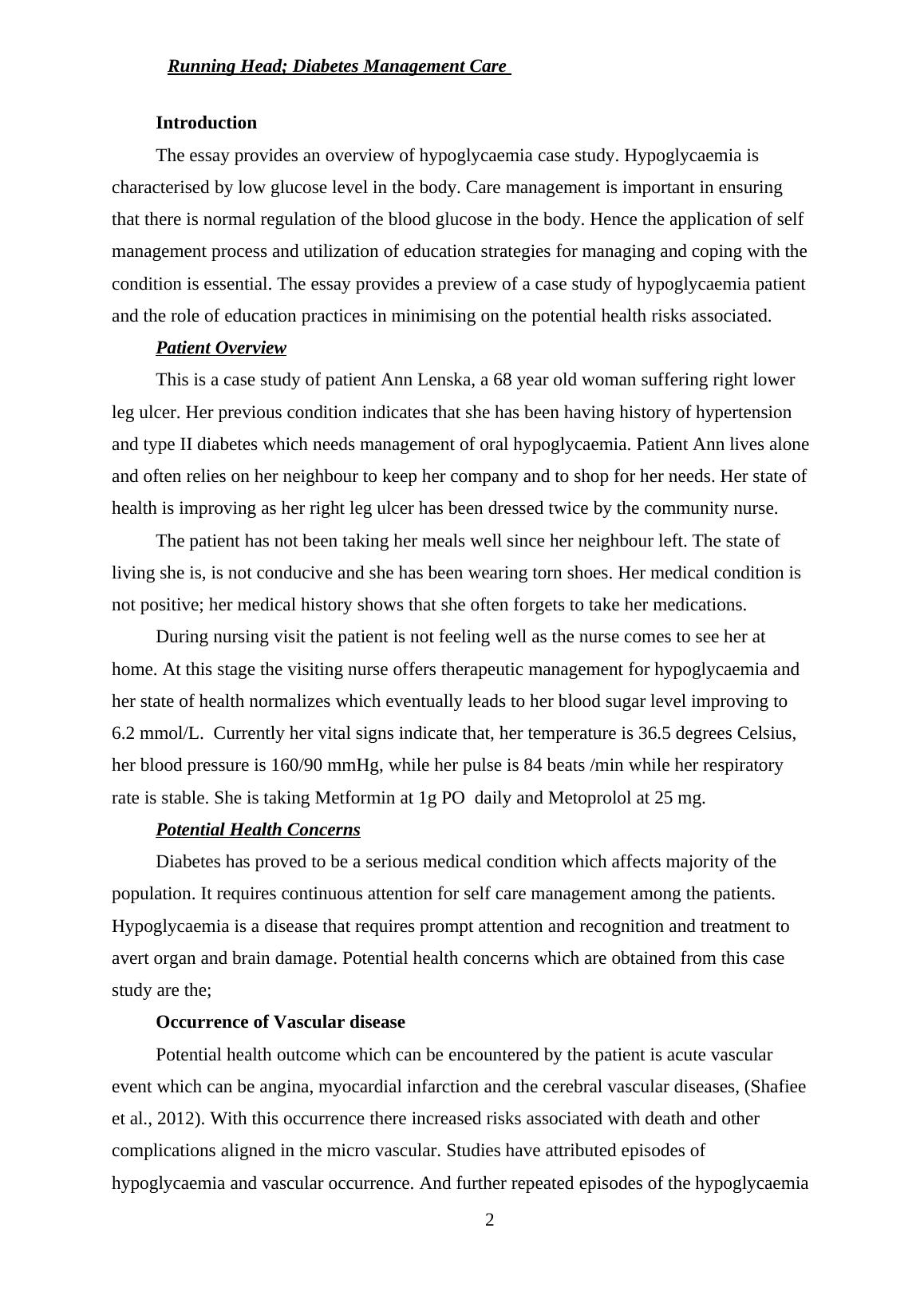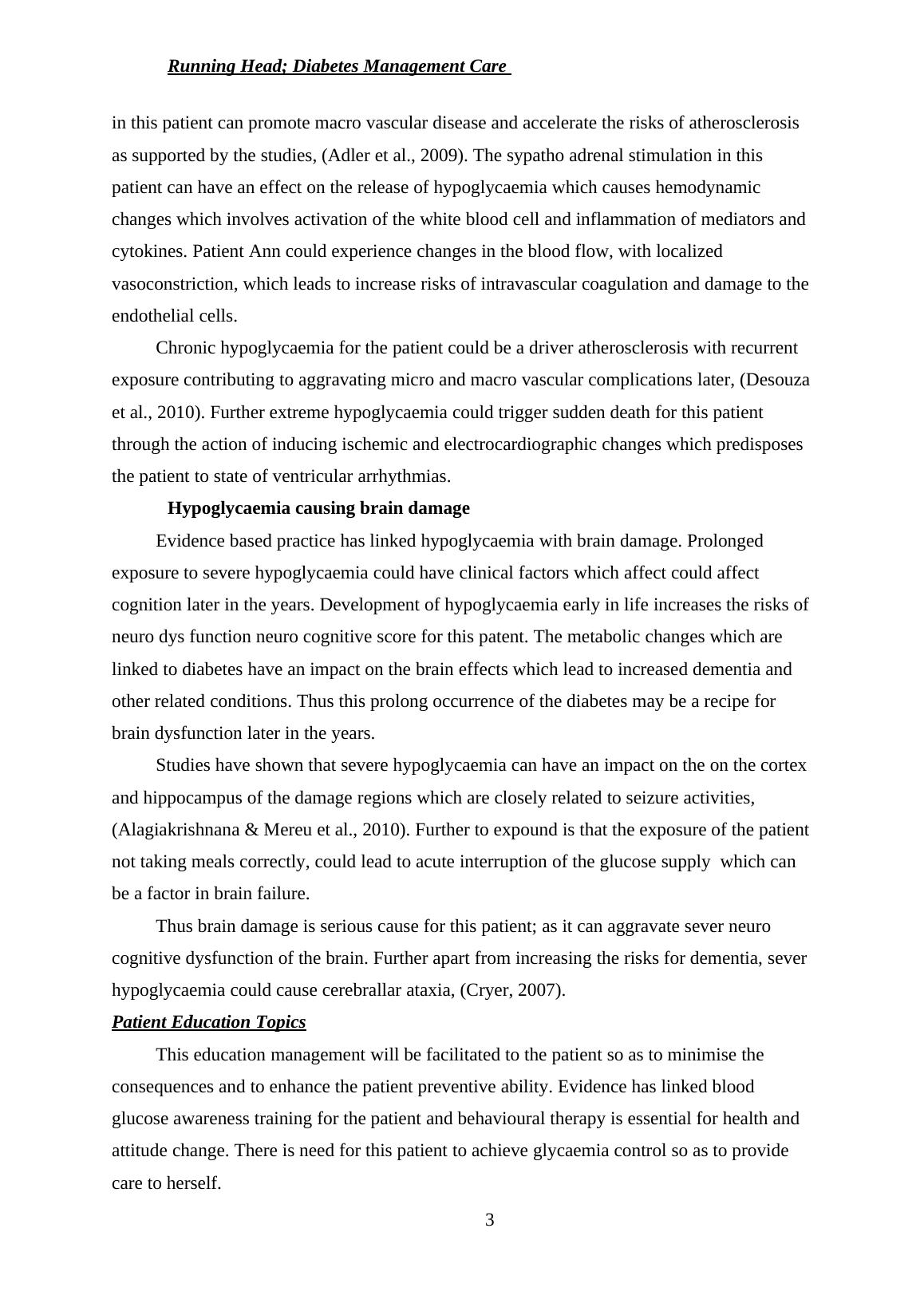2807NRS - Hypoglycaemia - Essay
Griffith University
Chronic Illness Management (2807NRS)
Added on 2020-03-02
About This Document
This essay provides an overview of the hypoglycaemia case study. Hypoglycaemia is characterized by low glucose levels in the body. Care management is important in ensuring that there is normal regulation of the blood glucose in the body. Hence, the application of the self-management process and utilization of education strategies for managing and coping with the condition is essential. This essay provides a preview of a case study of hypoglycaemia patients and the role of education practices in minimizing the potential health risks associated.
2807NRS - Hypoglycaemia - Essay
Griffith University
Chronic Illness Management (2807NRS)
Added on 2020-03-02
End of preview
Want to access all the pages? Upload your documents or become a member.



